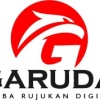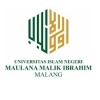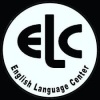INQUIRY-BASED LEARNING FOR STUDENTS’ SPEAKING SKILL IMPROVEMENT: VOICES AND REALITIES FROM THE GROUND
Abstract
Full Text:
PDFReferences
Banchi, H., & Bell, R. (2008). The many levels of inquiry. Science and Children, 46(2), 26.
Bakar, N. I. A., Noordin, N., & Razali, A. B. (2019). Improving oral communicative competence in English using project-based learning activities. English Language Teaching, 12(4), 73-84.
Bell, T., Urhahne, D., Schanze, S., & Ploetzner, R. (2010). Collaborative inquiry learning: Models, tools, and challenges. International Journal of Science Education, 32(3), 349-377.
Beyer, B. K. (1971). Inquiry in the social studies classroom: A strategy for teaching. Merrill Publishing company.
Brown, H. D. (2001). Teaching by principles: An interactive approach to language pedagogy. NY: Longman, 430.
Buchanan, S., Harlan, M. A., Bruce, C. S., & Edwards, S. L. (2016). Inquiry based learning models, information literacy, and student engagement: A literature review. School Libraries Worldwide, 22(2), 23-39.
Burnard, S. (1998). Developing children’s behavior in the classroom: A Practical guide for teachers and students. London: The Falmer Press.
Diane, L., & Anderson, M. (2011). Techniques and principles in language teaching. Oxford: Oxford University Press.
Frederick, A. D. (1991). Social studies through children’s literature: An integrated approach. Englewood, Colorado: Teacher Ideas Press.
Folse, K.S. (2006). The art of teaching speaking: Research and pedagogy for ESL/EFL classroom. Michigan: The Michigan University Press.
Fromkin, V., Blair, D., & Collins, P. (2001). An introduction to language (4th ed.). Victoria, Australia: Thomson.
Hannafin, M., et.al. (1999). Open learning environments: Foundation, methods, and models. In C. M. Reigeluth (Ed.), Instructional design theories and models: A new paradigm of instructional theory (pp. 115-140). New Jersey: Lawrence Erlbaum Associates, Inc.
Harmer, J. (2007). The practice of English language teaching. (4th ed.). New York: Pearson Longman.
Harris, D.P. (1990). Testing English as a second language. (5th ed.) New York: Mc-Graw Hill Co.
Hess, N. (2001). Teaching large multilevel classes. Cambridge: Cambridge University Press.
Huda, M. (2011). Cooperative learning: Metode, teknik, dan model penerapan. Yogyakarta: PT. Pustaka Pelajar.
Johnson, E. B. (2002). Contextual teaching and learning: What it is and why it’s here to stay. California: Corwin Press, Inc.
Kasbolah, K. (2002). Pengajaran dan pembelajaran kontekstual (CTL). Malang: Fakutas Sastra Universitas Negeri Malang.
Kasbolah, K. (2008). Pengembangan inovasi pembelajaran melalui penelitian tindakan kelas. Paper presented on Semi-Workshop on Classroom Action Research for Teachers of SD, SMP, and SMA of the whole East Java, 12 April 2008. Malang: State University of Malang.
Khalaf, B. K. (2018). Traditional and inquiry-based learning pedagogy: A systematic critical review. International Journal of Instruction, 11(4), 545-564.
Kemmis, S. & McTaggert, M. (1998). The action research planner. Victoria: Deakin University Press.
Koshy, V. (2006). Action research for improving practice: A practical guide. London: Paul Chapman Publishing.
Lemlech, J. K. (1994). Curriculum and instructional methods for the elementary and middle school (3rd ed.). New York: McMillan College Publishing Inc.
Loizou, M., & Lee, K. (2020). A flipped classroom model for inquiry-based learning in primary education context. Research in Learning Technology, 28.
McNiff, J. (1992). Action research: Principle and practice. New York: Routledge.
Nurhadi. (2002). Pendekatan kontekstual (contextual teaching and learning). Jakarta: Departemen Pendidikan Nasional.
Soetjipto, B. E. (1997). Penerapan strategi pengajaran inkuiri untuk meningkatkan CBSA di sekolah. Sumber Belajar. 4:36-47.
Suarez, A., Specht, M., Prinsen, F., Kalz, M., & Ternier, S. (2018). A review of the types of mobile activities in mobile inquiry-based learning. Computers & Education, 118, 38-55.
DOI: https://doi.org/10.18860/jeasp.v3i2.11120
Refbacks
- There are currently no refbacks.

This work is licensed under a Creative Commons Attribution-ShareAlike 4.0 International License.







Editorial Office:
Pusat Pengembangan Bahasa
Program Khusus Pengembangan Bahasa Inggris (PKPBI)
Universitas Islam Negeri Maulana Malik Ibrahim Malang
Gedung C lantai 1
Jl. Gajayana No 50 Kota Malang, Jawa Timur, Indonesia
Kode Pos 65144, Telp/Fax : (0341) 570872
Email: jeasp@uin-malang.ac.id
JEASP : Journal of English for Academic and Specific Purposes is licensed under a Creative Commons Attribution-ShareAlike 4.0 International











